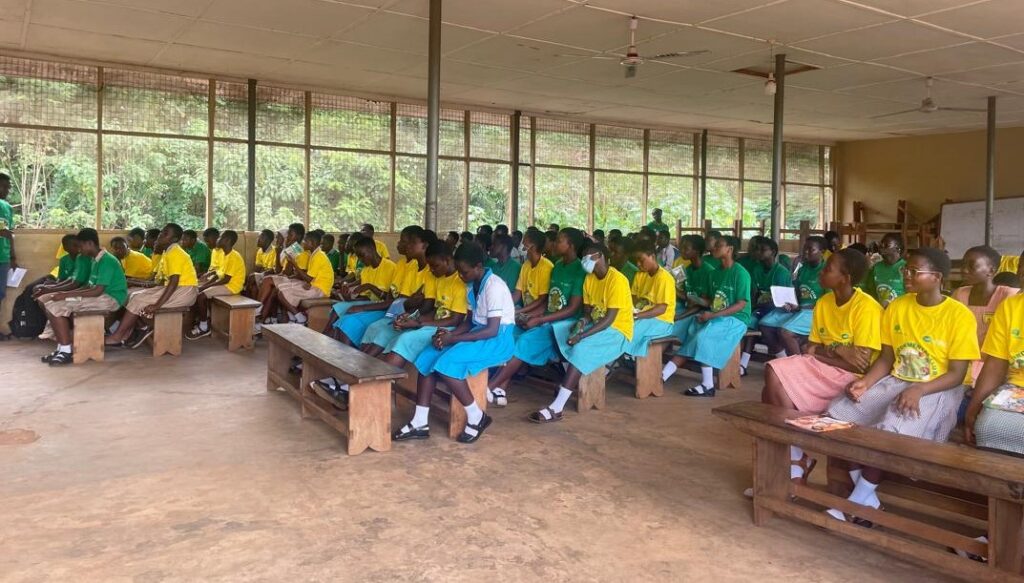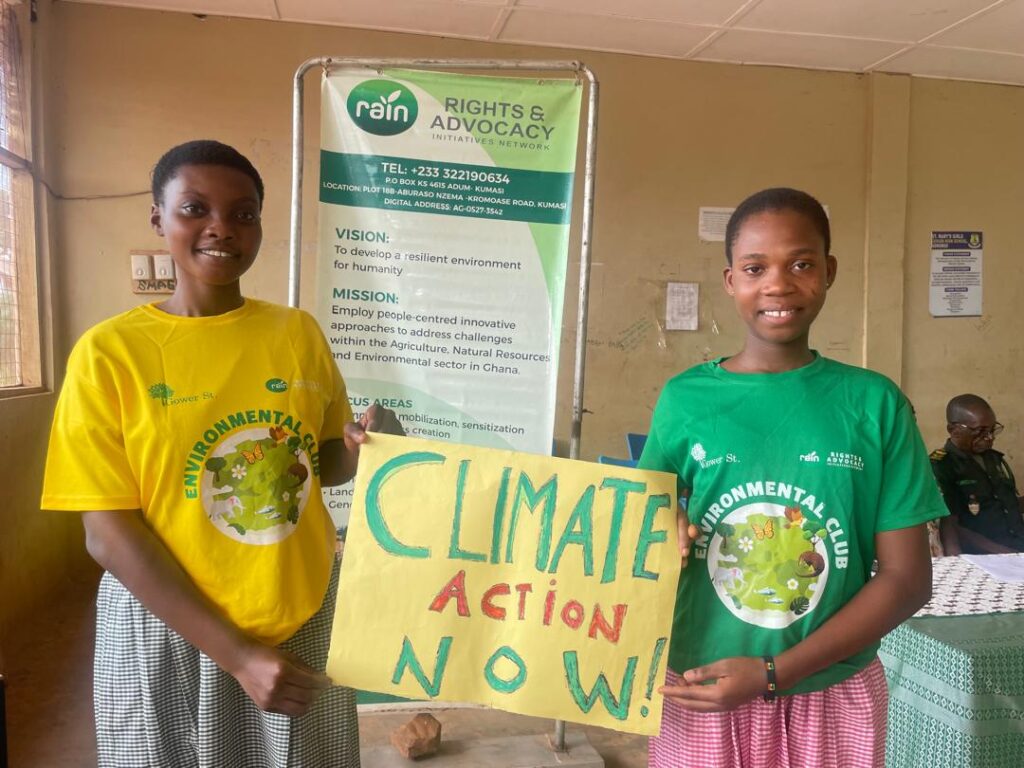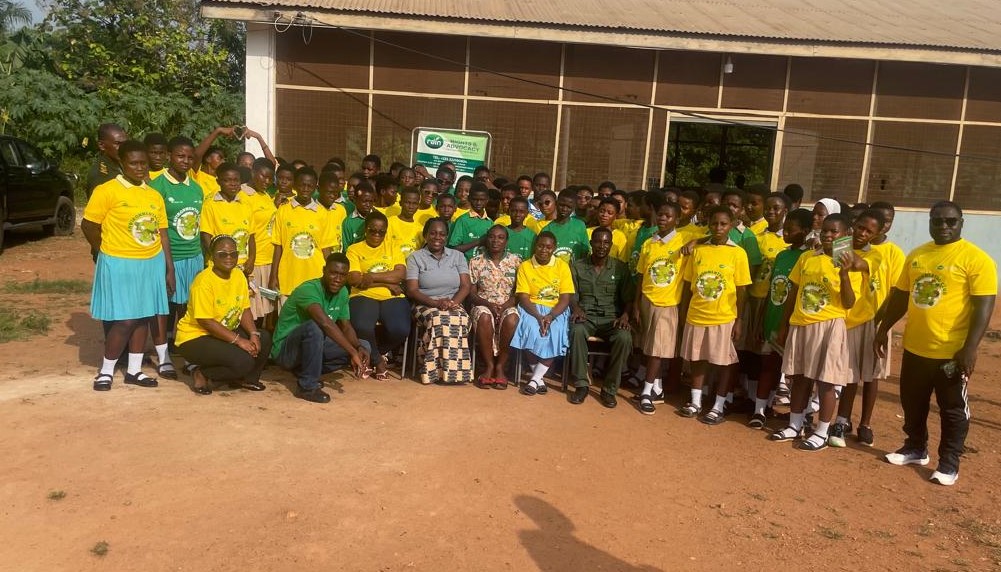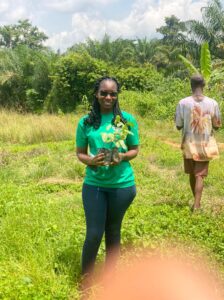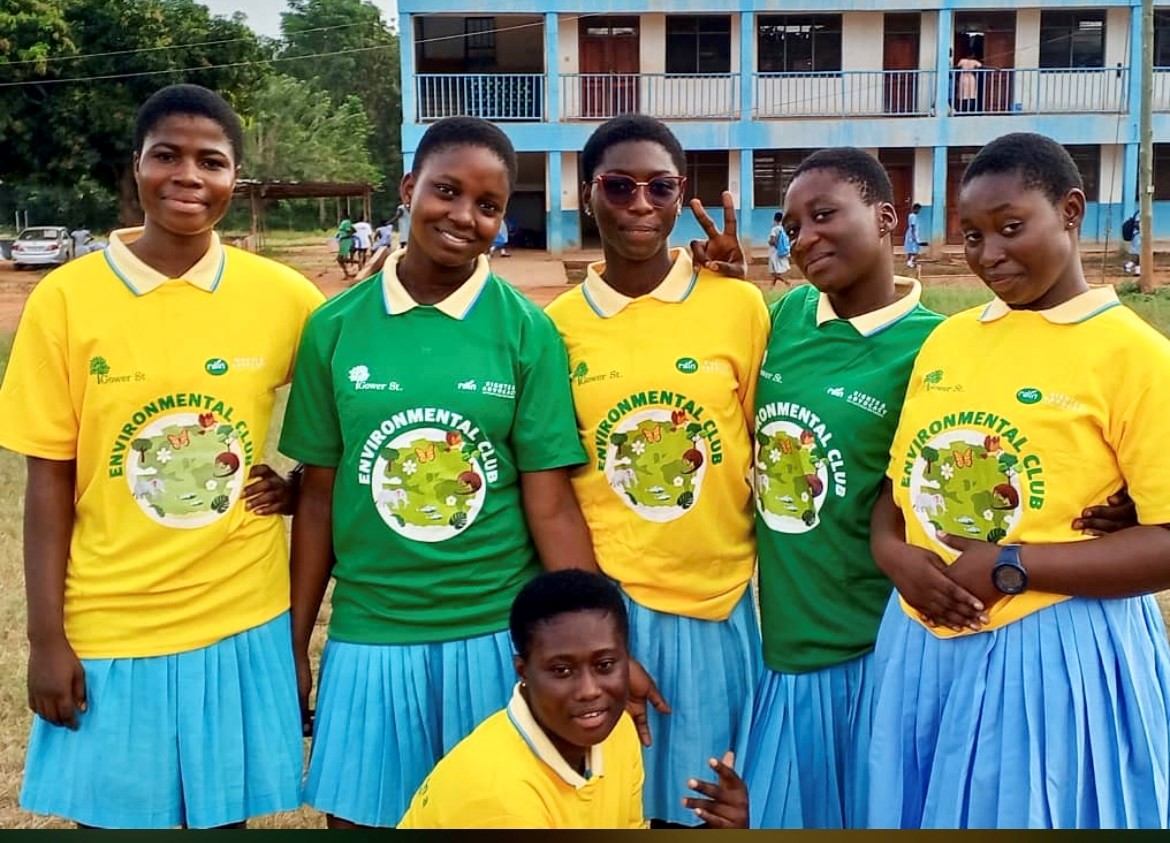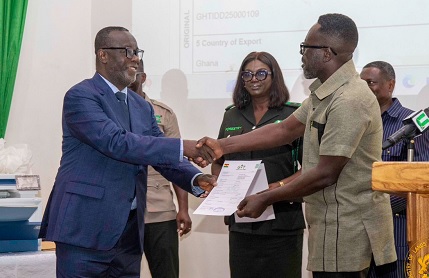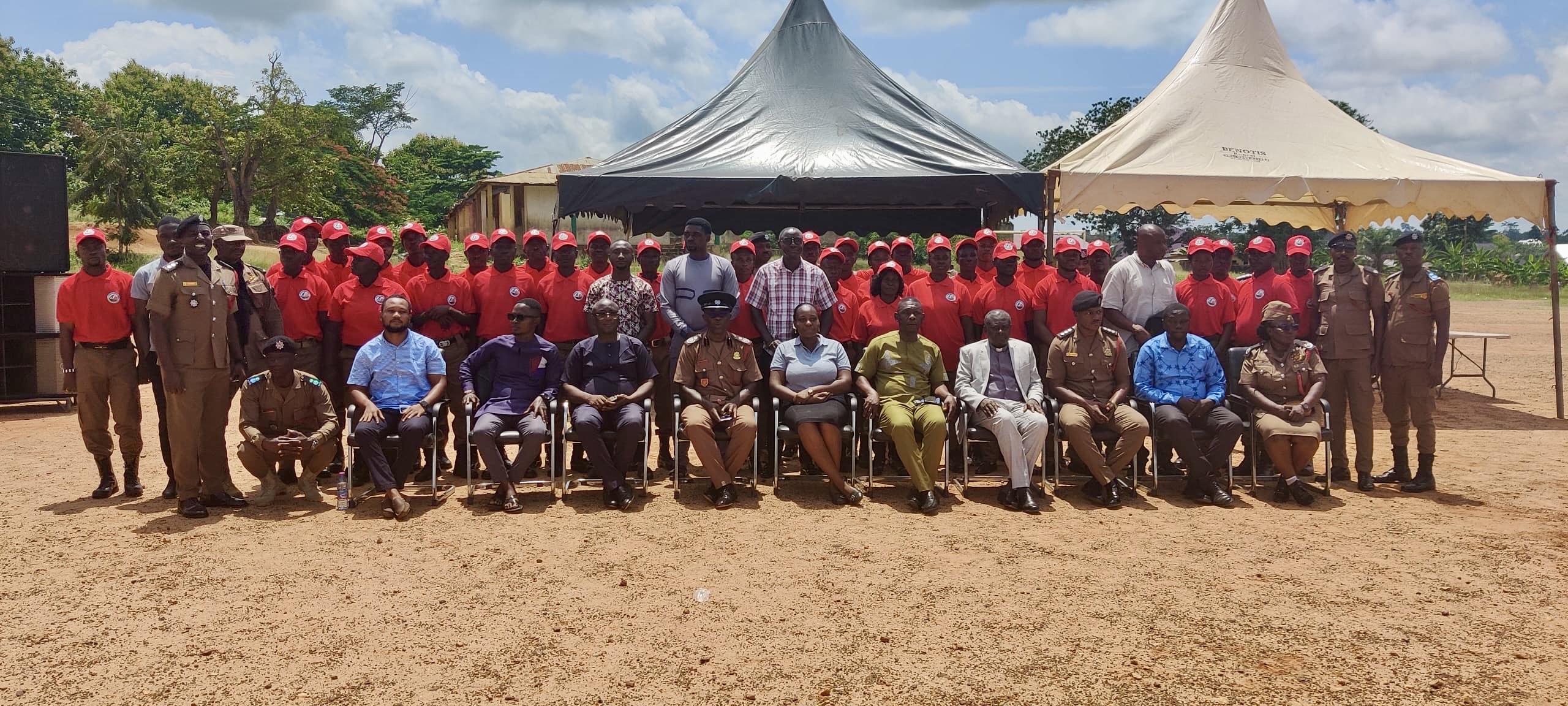As part of the Partnerships for Forest Protection and Livelihood in a Changing Climate Project funded by Gower Street, RAIN began a series of school engagements in Asante Akim Central District to increase environmental awareness and build youth leadership in climate action.
The initial interactions were designed to expose students to pressing environmental issues—climate change, waste management, forest protection, and fire safety—while inspiring them to become active contributors to solutions.
At Patriensa M/A JHS, students learned about the causes and effects of climate change, shared personal observations such as erratic rainfall and declining crop yields, and discussed actions they could take at school and at home. At St. Mary’s Girls SHS, over 600 students were introduced to fire safety, environmental stewardship, and the idea of forming Environmental Clubs as a platform for continuous learning and action.
These early visits were deliberately practical and interactive, helping students connect environmental challenges to their daily lives. They also set the stage for the establishment of vibrant school clubs where young people could develop leadership skills, support forest protection efforts, and contribute meaningfully to the Gower Street Project’s broader goal of promoting climate resilience and sustainable landscapes.
The momentum built through these engagements culminated in the official launch of the Environmental School Clubs on 19th November 2025 at St. Mary’s Girls SHS, Konongo. The launch brought together members of St. Mary’s Eco Green Girls Club (92 students) and Patriensa’s Environmental Caretaker Club (25 students) along with other student participants, their patrons, RAIN staff, and representatives from the Forestry Services Division (FSD).
From the outset, the atmosphere reflected purpose and excitement. The Executive Director of RAIN opened with a conversation that challenged students to reflect on their role in environmental stewardship.
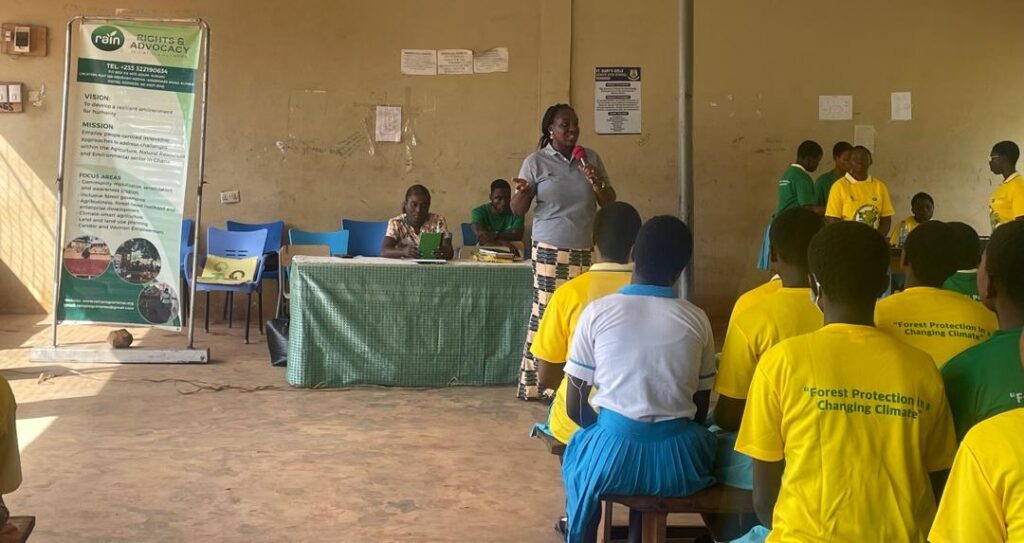
“Why do you think we are targeting you?” she asked.
“Because we are the future leaders!” the students responded in unison. She expanded on this, reminding them that leadership begins with simple, consistent habits—proper waste disposal, respecting natural resources, planting and nurturing trees, and speaking up for the environment. She emphasized that the youth energy and curiosity they possess are exactly what Ghana’s forests and landscapes need in order to thrive in a changing climate.
Madam Priscilla Asomani (District Manager-Forest Services Division-Juaso) led an interactive discussion on the meaning of stewardship. Students defined the environment as the forests, rivers, wildlife, atmosphere, and the spaces where people live. They suggested ways to safeguard these systems: tree planting, recycling, keeping surroundings clean, avoiding bushfires, and educating peers. Her facilitation helped students understand that stewardship requires awareness, responsibility, and consistent action.
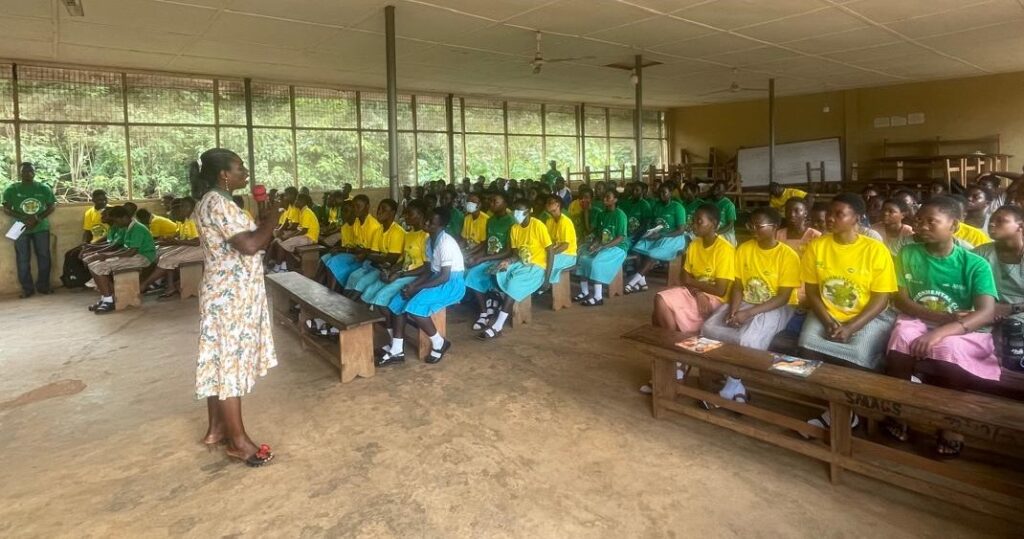
A beautiful poem by Shinnel Sackey added emotion to the event, portraying nature as fragile yet full of hope—hope that rests in the hands of young people willing to protect it.
The symbolic moment of the launch was marked with placards held high by students, reflecting strong messages such as: Save Nature • Zero Waste • Grow Forests • Protect Our Planet • Plant More Trees
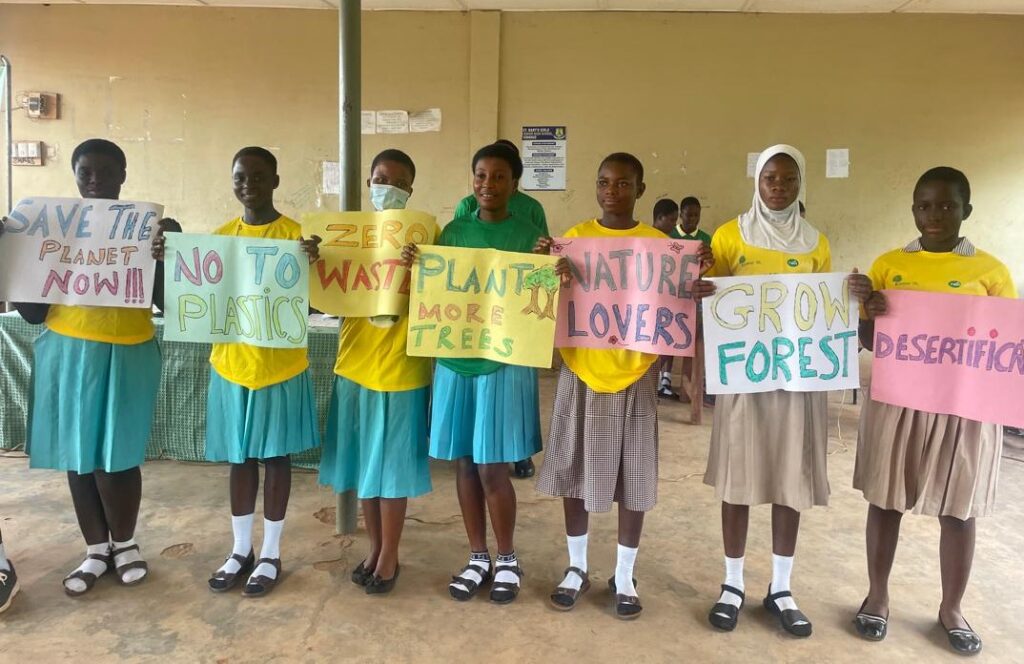
This display captured the spirit of the Project’s vision: empowering communities—especially the youth—to take ownership of their environment and safeguard their forests as sources of livelihood, biodiversity, and climate resilience.
RAIN and FSD encouraged the clubs to develop practical action plans and highlighted opportunities for participation in national exercises like Green Ghana Day. Students were energized by the prospect of learning, leading, and being part of something transformative.
By the close of the event, the Environmental School Clubs had moved from concept to reality—filled with excited students ready to lead clean-ups, initiate school gardens, advocate for sustainable practices, and contribute to forest protection. What began as a series of learning engagements had evolved into a structured, youth-driven movement aligned with the Gower Street Project’s mission of building resilient communities and healthy forest landscapes in Ghana.
With the Environmental School Clubs now formally launched, RAIN is entering a new phase of youth-centered environmental action under the Gower Street Project. The coming months will focus on transforming the enthusiasm demonstrated by students into consistent, meaningful impact.
By nurturing these clubs, RAIN envisions a network of empowered young stewards who will carry forward forest protection and climate resilience efforts long after the project ends. The launch marks only the beginning—what follows is the sustained growth of informed, motivated youth committed to restoring landscapes, strengthening community awareness, and championing a greener, more resilient future for Asante Akim Central and beyond.
